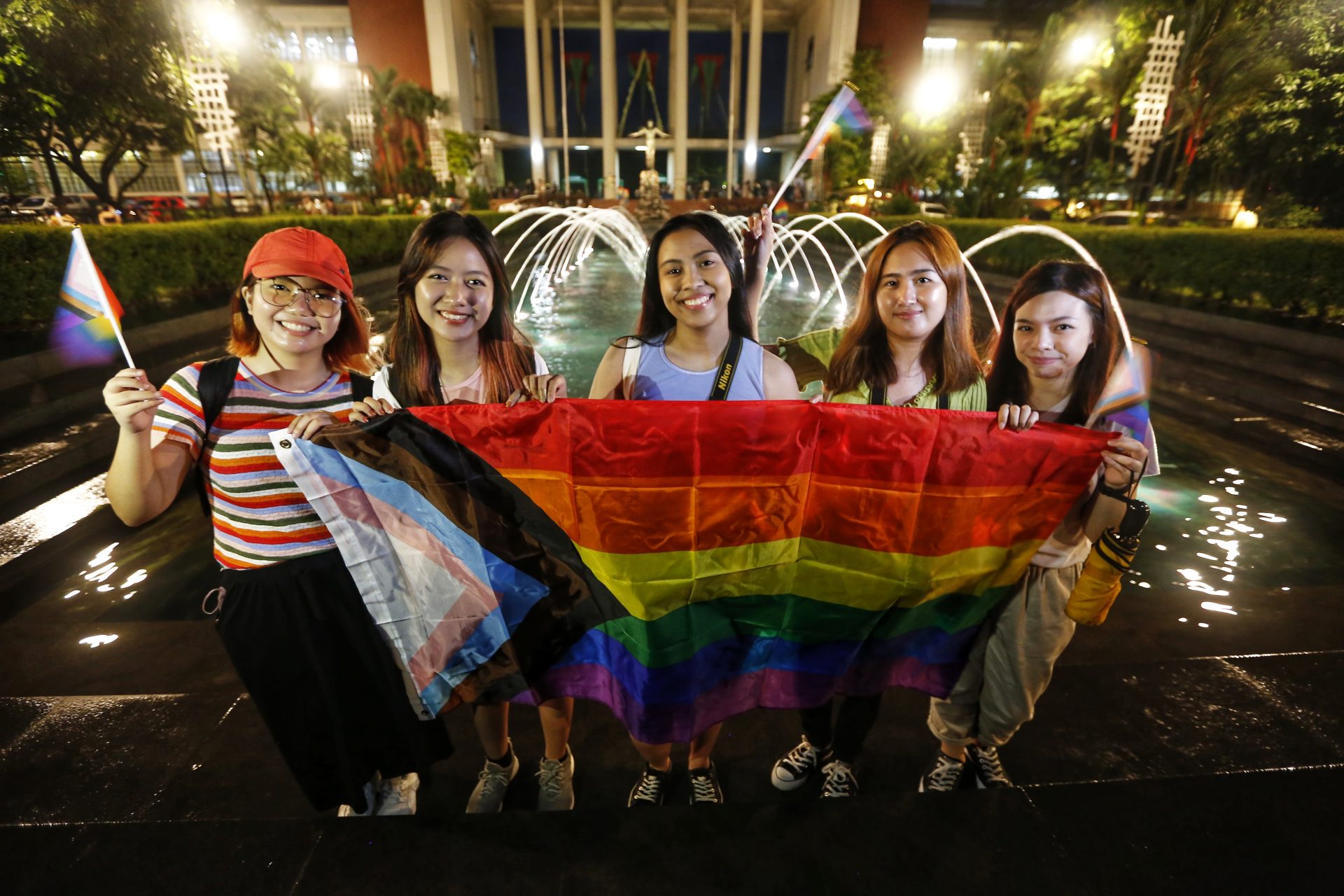Groups advocating for the rights of LGBTQIA+ people slammed the Philippine government for allegedly using the Catholic faith to justify the rejection of laws that will protect their rights.
“The Philippine government cannot use the Catholic religion to oppose the passage of laws protecting and affirming the rights of LGBTQIA+ people and of abused women to divorce,” said lawyer Clara Rita Padilla, executive director of EnGendeRights.
She said it violates the constitutional guarantee of “non-establishment of religion.” In a statement, the lawyer said the standard in governance is “public and secular and not religious morality.”
“The Philippine government must uphold the constitutional guarantee of non-establishment of religion and pass the laws on SOGIE Equality, Divorce and Marriage Equality,” she said.
The Philippines has ignored calls from a United Nations body to legalize same-sex marriage and enact other pieces of legislation that seek to protect the members of the LGBT community from discrimination and allow divorce in the country.
Justice Secretary Jesus Crispin Remulla said the recommendations from other UN member-states during last week’s Universal Periodic Review (UPR) in Geneva were “not acceptable.”
Remulla said the country also rejected proposals to allow abortion and divorce and enact the SOGIE bill, which seeks to protect the members of LGBT community from discrimination.
“They want the SOGIE Bill for same-sex marriage to have the same as in their countries. So, that’s not acceptable for us. They really want a lot to be implemented here,” Remulla said in Filipino in a radio program last week.
“Divorce, even though we want it, needs thorough discussion, given that ours is a Catholic nation,” he added.
But Padilla said the Philippine Constitution guarantees separation of church and state and non-establishment of religion to prohibit the establishment of religion in our law and to guard against the views of any majority or minority religion in influencing our laws.
“Our constitutional guarantee of non-establishment of religion is significant to uphold the right of all persons to freedom of thought, conscience and religion,” she said.
“This development is disappointing on so many levels,” said Percival Cendana of the party-list group Akbayan.
He said that by rejecting measures that protect the rights of the LGBTQIA+ community “prevents the country from opening opportunities for healthier, happier marriages, and creating a mechanism which frees abused spouses from violence.”
Cendana said there are numerous majority Catholic countries around the world that legally recognize same-sex marriage and divorce, such as Costa Rica, Northern Ireland, Ecuador, and Malta.
“Matters related to marriage, procreation, to beget children or not, contraception, divorce are covered by the constitutional right to privacy where the government is precluded from interfering,” said Padilla.







